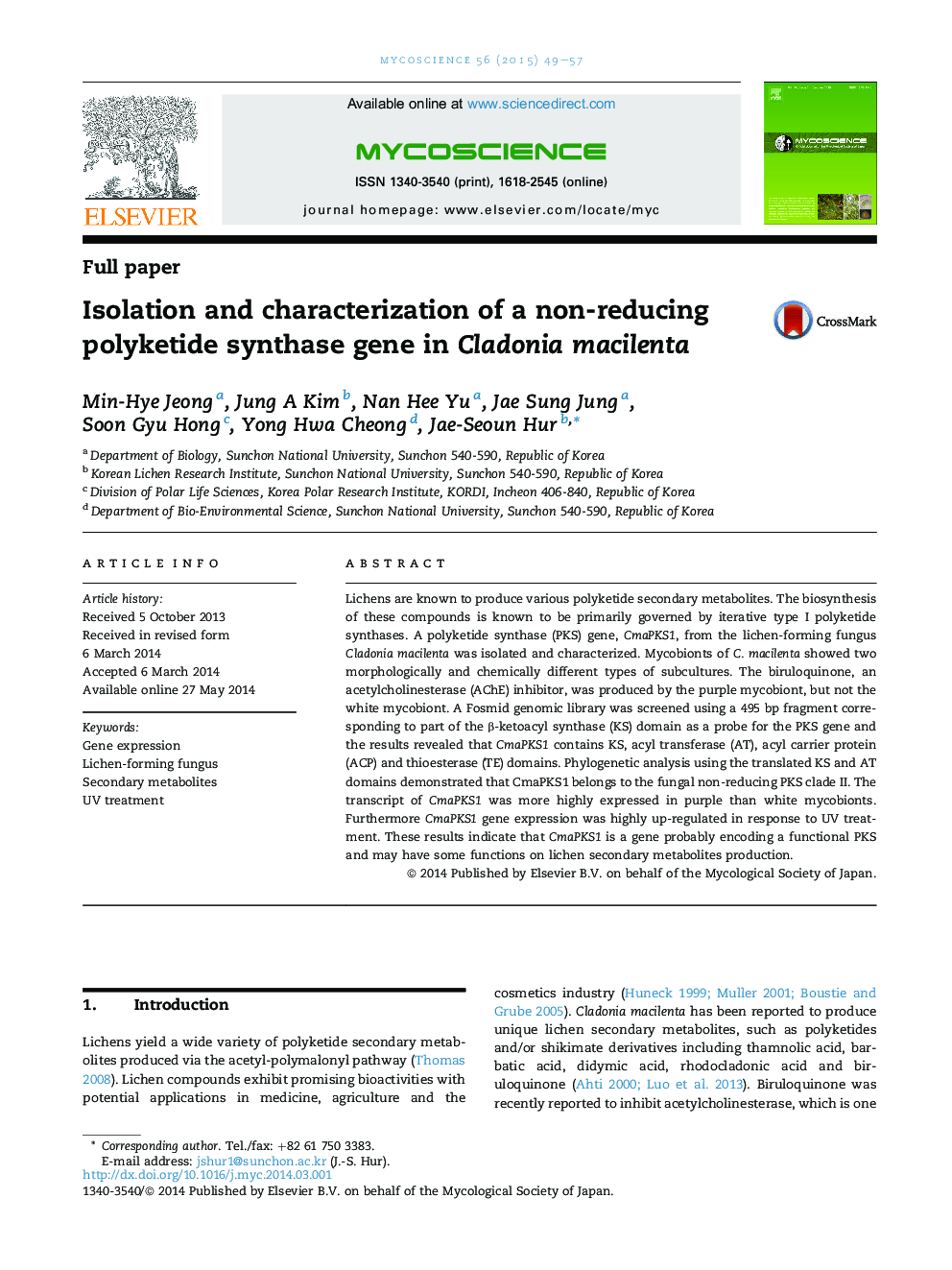| Article ID | Journal | Published Year | Pages | File Type |
|---|---|---|---|---|
| 2060217 | Mycoscience | 2015 | 9 Pages |
•New non-reducing polyketide synthase (PKS) gene from lichen-forming fungi.•Characterization of the PKS gene.•Expression of the PKS gene under various conditions including UV exposure.
Lichens are known to produce various polyketide secondary metabolites. The biosynthesis of these compounds is known to be primarily governed by iterative type I polyketide synthases. A polyketide synthase (PKS) gene, CmaPKS1, from the lichen-forming fungus Cladonia macilenta was isolated and characterized. Mycobionts of C. macilenta showed two morphologically and chemically different types of subcultures. The biruloquinone, an acetylcholinesterase (AChE) inhibitor, was produced by the purple mycobiont, but not the white mycobiont. A Fosmid genomic library was screened using a 495 bp fragment corresponding to part of the β-ketoacyl synthase (KS) domain as a probe for the PKS gene and the results revealed that CmaPKS1 contains KS, acyl transferase (AT), acyl carrier protein (ACP) and thioesterase (TE) domains. Phylogenetic analysis using the translated KS and AT domains demonstrated that CmaPKS1 belongs to the fungal non-reducing PKS clade II. The transcript of CmaPKS1 was more highly expressed in purple than white mycobionts. Furthermore CmaPKS1 gene expression was highly up-regulated in response to UV treatment. These results indicate that CmaPKS1 is a gene probably encoding a functional PKS and may have some functions on lichen secondary metabolites production.
